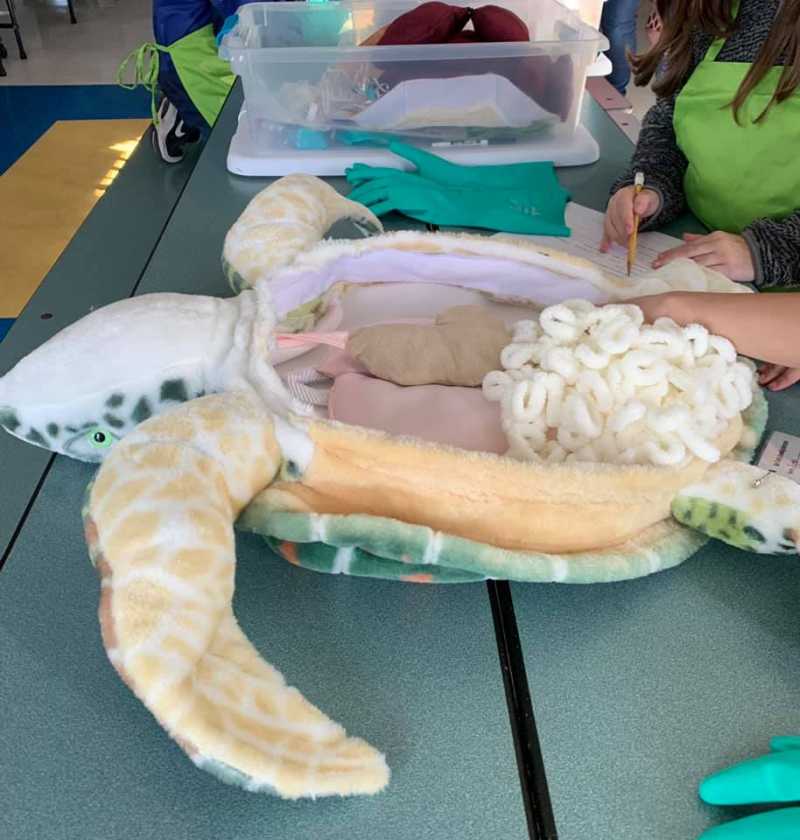The University of North Carolina Wilmington (UNCW) MarineQuest is educating students on ways they can prevent and reduce marine debris through hands-on lessons focused on sea turtles.
Type of Project: Marine Debris Prevention Grant
Region: Southeast
Project Dates: September 2018 - February 2021
Who is involved?
The University of North Carolina MarineQuest, with the support of a NOAA Marine Debris Prevention Grant, is educating youth in southeastern North Carolina about the impacts of marine debris on sea turtles through their program, Turtle Trash Collectors (2TC).
What is the project and why is it important?
Marine debris has major impacts on all kinds of marine animals, especially sea turtles. These iconic animals can confuse plastic bags and balloons for jellyfish, their favorite food. Any debris that ends up in their digestive system can get stuck, making the turtle feel full so that they stop eating. They can also swallow fishing hooks, and get caught in fishing nets. Because sea turtles are threatened and endangered species, we need to find a way to protect them from the impacts of marine debris.
2TC will leverage students’ fondness for sea turtles and encourage behavior changes that will reduce their generation of marine debris in the future. During 2TC programs, youth will participate in a hands-on simulation of a sea turtle necropsy, or animal dissection, and learn that marine debris can have major impacts on sea turtles, even causing death. Students will recognize many of the debris items that have impacted their turtles as objects they frequently use, and will be inspired to help save sea turtles after this experience.
Additionally, students can then participate in the UNCW 2TC digital badging program, a digital rewards system that helps youth develop the good habits, such as using fewer single use items and cleaning up marine debris.
For more information about this project, visit the Marine Debris Program Clearinghouse.
 An official website of the United States government.
An official website of the United States government. 

